 | TODAY IN SCIENCE HISTORY NEWSLETTER - 31 MARCH |
| Feature for Today |
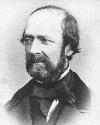 On 31 Mar 1851, Leon Foucault demonstrated his now-famous pendulum experiment at the Pantheon of Paris at the request of Napoleon Bonaparte, who had been informed of Foucault's recent discovery on 6 Jan 1851. On 31 Mar 1851, Leon Foucault demonstrated his now-famous pendulum experiment at the Pantheon of Paris at the request of Napoleon Bonaparte, who had been informed of Foucault's recent discovery on 6 Jan 1851.In January, he had installed a long pendulum with a heavy bob in his cellar in the Arras Street of Paris. It revealed that the Earth was rotating underneath the swinging pendulum. His original annoucement of his discovery was in a French journal, but you an read his original words, in translation, describing his experiment reprinted with an introduction in Physical Demonstration of the Earth's Motion of Rotation, by Means of the Pendulum. |
| Book of the Day | |
| |
| Quotations for Today | |
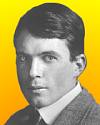 | "God runs electromagnetics on Monday, Wednesday, and Friday by the wave theory, and the devil runs it by quantum theory on Tuesday, Thursday, and Saturday. " |
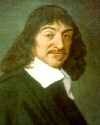 | "After that, I thought about what a proposition generally needs in order to be true and certain because, since I had just found one that I knew was such, I thought I should also know what this certainty consists in. Having noticed that there is nothing at all in the proposition 'I think, therefore I am' [cogito ergo sum] which convinces me that I speak the truth, apart from the fact that I see very clearly that one has to exist in order to think, I judged that I could adopt as a general rule that those things we conceive very clearly and distinctly are all true. The only outstanding difficulty is in recognizing which ones we conceive distinctly." |
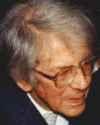 | "One may characterize physics as the doctrine of the repeatable, be it a succession in time or the co-existence in space. The validity of physical theorems is founded on this repeatability." |
| QUIZ | |
| Before you look at today's web page, see if you can answer some of these questions about the events that happened on this day. Some of the names are very familiar. Others will likely stump you. Tickle your curiosity with these questions, then check your answers on today's web page. | |
| Births | |
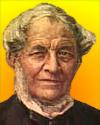 |  A German chemist was born on 31 Mar 1811, who, with Gustav Kirchhoff, about 1859 observed that each element emits a light of characteristic wavelength. With this tool, he soon discovered two new elements: cesium and rubidium. He also made a number of improvements in chemical batteries. Yet is none of these accomplishments for which his name is most widely remembered. Instead, it is the device, named after him, which he originated for use in flame tests of various metals and salts because its nonluminous flame did not interfere with the colored flame given off by the test material. A German chemist was born on 31 Mar 1811, who, with Gustav Kirchhoff, about 1859 observed that each element emits a light of characteristic wavelength. With this tool, he soon discovered two new elements: cesium and rubidium. He also made a number of improvements in chemical batteries. Yet is none of these accomplishments for which his name is most widely remembered. Instead, it is the device, named after him, which he originated for use in flame tests of various metals and salts because its nonluminous flame did not interfere with the colored flame given off by the test material.  What is the name of this device? What is the name of this device? |
 |  Ren� Descartes, born 31 Mar of a certain year, was a French mathematician, scientist, and "the father of modern philosophy." His name is remembered in Cartesian geometry. He also wrote a major treatise on physics, though he decided not to publish that work during his lifetime. Ren� Descartes, born 31 Mar of a certain year, was a French mathematician, scientist, and "the father of modern philosophy." His name is remembered in Cartesian geometry. He also wrote a major treatise on physics, though he decided not to publish that work during his lifetime.  In which century did he live most of his life? In which century did he live most of his life? |
| Deaths | |
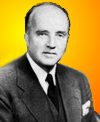 |  Charles Herbert Best (1899-1978) was an American physiologist who, with Sir Frederick Banting, was the first to obtain (1921) a certain pancreatic extract, valuable to treat a widespread medical condition. But because Best did not receive his medical degree until 1925, he did not share the Nobel Prize for Physiology or Medicine awarded to Banting and J.J.R. Macleod in 1923 for their role in the work. Best also discovered the vitamin choline and the enzyme histaminase. He was the first to introduce anticoagulants in treatment of thrombosis (blood clots). Charles Herbert Best (1899-1978) was an American physiologist who, with Sir Frederick Banting, was the first to obtain (1921) a certain pancreatic extract, valuable to treat a widespread medical condition. But because Best did not receive his medical degree until 1925, he did not share the Nobel Prize for Physiology or Medicine awarded to Banting and J.J.R. Macleod in 1923 for their role in the work. Best also discovered the vitamin choline and the enzyme histaminase. He was the first to introduce anticoagulants in treatment of thrombosis (blood clots).  What was the pancreatic extract Best prepared with Banting? What was the pancreatic extract Best prepared with Banting? |
| Events | |
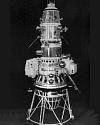 |  On 31 Mar 1966, the U.S.S.R. launched Luna 10, on its way to the moon. On 31 Mar 1966, the U.S.S.R. launched Luna 10, on its way to the moon.  What accomplishment by Luna 10 was the first of its kind? What accomplishment by Luna 10 was the first of its kind? |
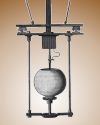 |  On 31 Mar of a certain year, Wabash, Indiana, became the first town in which electric lighting completely replaced gas lamps. Four 4,000 candle-power Brush arc lamps, suspended 50 feet above the business district were powered by a small dynamo connected to a threshing machine's steam engine. On 31 Mar of a certain year, Wabash, Indiana, became the first town in which electric lighting completely replaced gas lamps. Four 4,000 candle-power Brush arc lamps, suspended 50 feet above the business district were powered by a small dynamo connected to a threshing machine's steam engine.  In which decade were the streets of Wabash first lit by electricity? In which decade were the streets of Wabash first lit by electricity? |
| Answers |
When you have your answers ready to all the questions above, you'll find all the information to check them, and more, on the March 31 web page of Today in Science History. Or, try this link first for just the brief answers. Fast answers for the previous newsletter for March 30: The decade including the year 1907; Gerardus Mercator; Alessandro Giuseppe Antonio Anastasio Volta; jets of oxygen to assist heating lime to incandescence; Copernicus. |
| Feedback |
 If you enjoy this newsletter, the website, or wish to offer encouragement or ideas, please send feedback by using your mail reader Reply button. If you enjoy this newsletter, the website, or wish to offer encouragement or ideas, please send feedback by using your mail reader Reply button. |
--
If you do not want to receive any more newsletters, Unsubscribe
To update your preferences and to unsubscribe visit this link


Δεν υπάρχουν σχόλια:
Δημοσίευση σχολίου